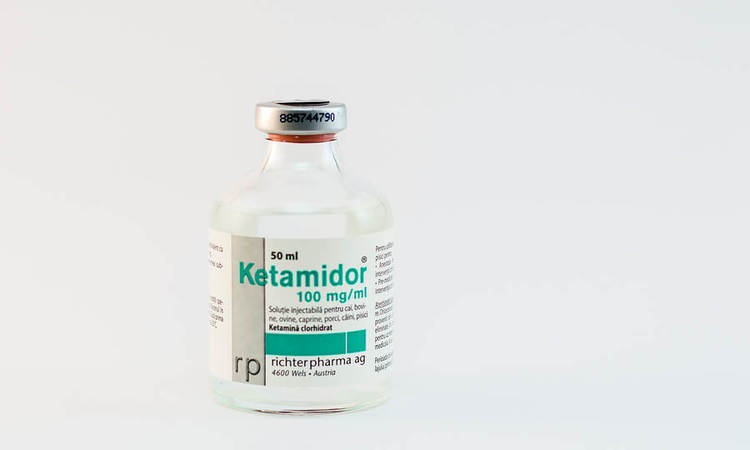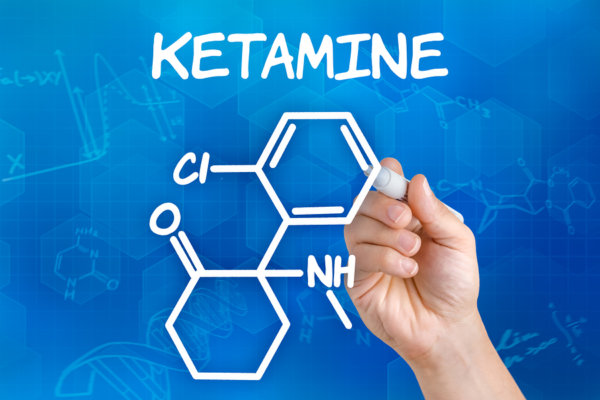
Ketamine (Special K) is a potent anesthetic and dissociative, meaning it induces feelings of detachment from one’s body. It’s commonly used in veterinary medicine and to help with sedation during surgery. However, it is also common on the party and club scene among those seeking the high it provides. While ketamine isn’t believed to be as addictive as many other drugs of abuse, it does occasionally occur and can be detrimental to one’s life.
Ketamine comes in several forms, including powder, liquid, and as pills. When ingested, ketamine can cause users to experience visual and auditory hallucinations and euphoria. Because it’s an anesthetic, it also reduces physical sensations. Combining this drug with other depressants, such as alcohol, increases the risk of profound respiratory depression, which can be life-threatening.
Ketamine is also now available by prescription, as it is believed to be effective at treating symptoms of depression and alcohol addiction and withdrawal.
Signs and Symptoms of Ketamine Addiction
Ketamine is a relatively short-acting drug. One of the primary effects that people enjoy is that it blocks pain sensations. Unfortunately, not reacting to painful stimuli can be dangerous. For this and many other reasons, ketamine should not be taken outside of a clinical environment or as prescribed by a doctor.
Furthermore, ketamine use can impair coordination, especially when used with other depressants. This effect could be risky and lead to injury, and it could also cause a person’s judgment capabilities to be diminished. Because it is an anesthetic, it is easy to hurt oneself whilst on ketamine. Pain is essential for survival. It warns us when we are hurt in order to prevent further damage. Someone on ketamine can suffer from a severe injury and go one with life as if nothing happened.
In addition to sedating the user and impairing movement, it can produce out-of-body experiences in which the user feels detached from oneself and the surrounding environment. It distorts perceptions of sight and sound. At high doses, the user may encounter intense and frightening effects that feel like a near-death experience. This event is also often called a “K-hole.”
The symptoms of ketamine abuse and addiction are similar to those associated with alcohol abuse and may include the following:
- Disorientation
- Feelings of detachment
- Hallucinations
- Slowed or labored breathing
- Mood changes
- Depression
- Impaired cognitive abilities
- Impaired memory
- Nausea
- Vomiting
Effects of Ketamine Abuse

Ketamine can be an unpleasant drug to abuse in the long-term. Repeated use can cause a wide array of adverse effects on the brain and body.
For example, it can cause severe abdominal pain, as well as damage to the bladder and urinary tract, also referred to as ketamine bladder syndrome. This condition leads to decreased control of the bladder and incontinence. It may also cause blood in the urine and ulcers in the bladder.
Because ketamine is often available as a powder, users frequently snort it. Unfortunately, many of these powders are laced with other drugs. It may be something relatively benign, such as talcum powder or sugar, but it could also be combined with something more hazardous, like acetaminophen (Tylenol) or drain cleaner.
A dose can be difficult to gauge, and in some cases, it could be the wrong substance altogether (e.g., fentanyl), and result in a life-threatening overdose.
Ketamine Withdrawal
Withdrawal from ketamine typically lasts for 4-6 days after the last dose, and it might feel like suffering from severe flu symptoms. A person may encounter the following symptoms:
- Chills and sweating
- Cravings
- Fatigue
- Nightmares
- Depression
- Anxiety
- Stiff muscles
- Involuntary eye movement
These symptoms are not at all pleasant, but they can be effectively managed with medical care. In a clinical environment with medical supervision, a patient can be as safe and comfortable as possible as he or she withdraws.
Treatment for Ketamine Abuse or Addiction
If you are abusing ketamine or have developed an addiction, you can get help at a rehab center. At Recovery By The Sea, you can receive treatment for ketamine addiction in a safe and comfortable environment and remain protected from the temptations of further ketamine use.
It’s not uncommon for people who abuse ketamine to also use other drugs or alcohol, and if these other problems exist, they can be addressed simultaneously. Therapeutic services and activities we offer that are intended to treat all aspects of a person’s well-being include the following:
- Cognitive-behavioral therapy
- Individual and family counseling
- Peer support groups
- Health and wellness education
- Substance abuse education
- Art, music, and adventure therapy
- Medication-assisted treatment
- Aftercare planning
We also provide treatment for co-occurring mental health conditions, such as depression, anxiety, PTSD, childhood trauma, and more.
If you are ready to take the first step toward sobriety, contact us today! Drug abuse and addiction are conditions that may need lifelong maintenance, but you don’t have to do this alone! We are here to help!
READ THIS NEXT: The Top Nine Most Commonly Abused Hallucinogens